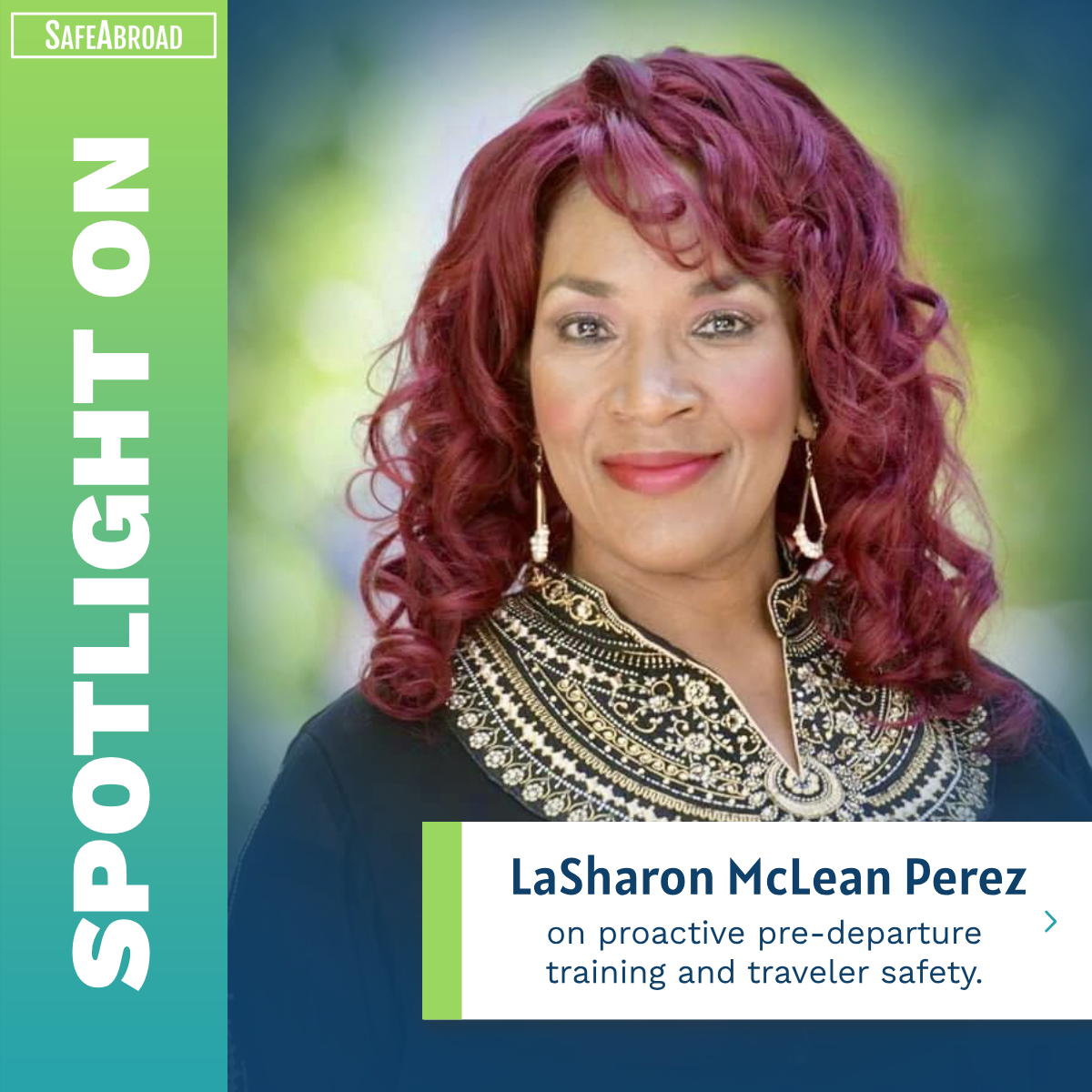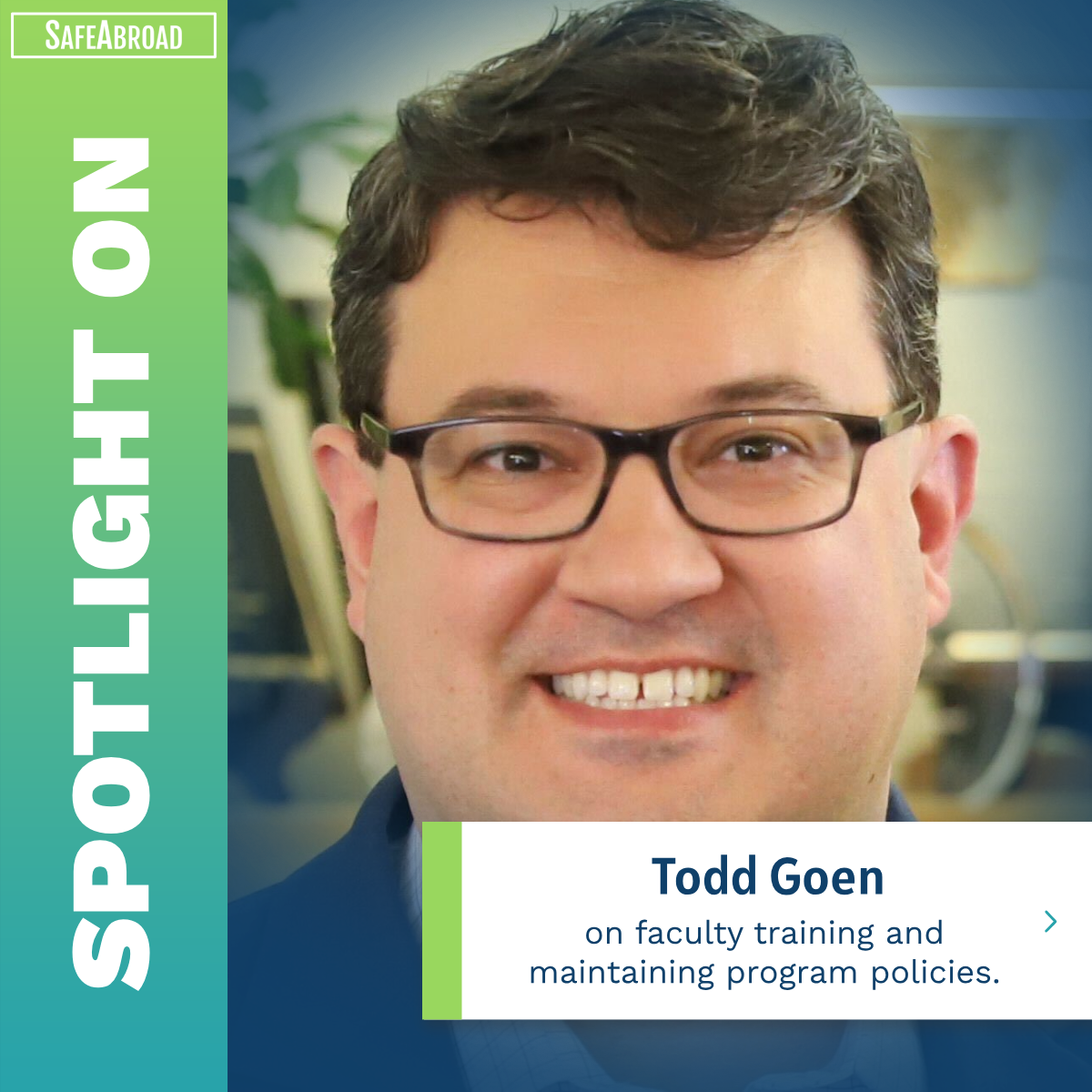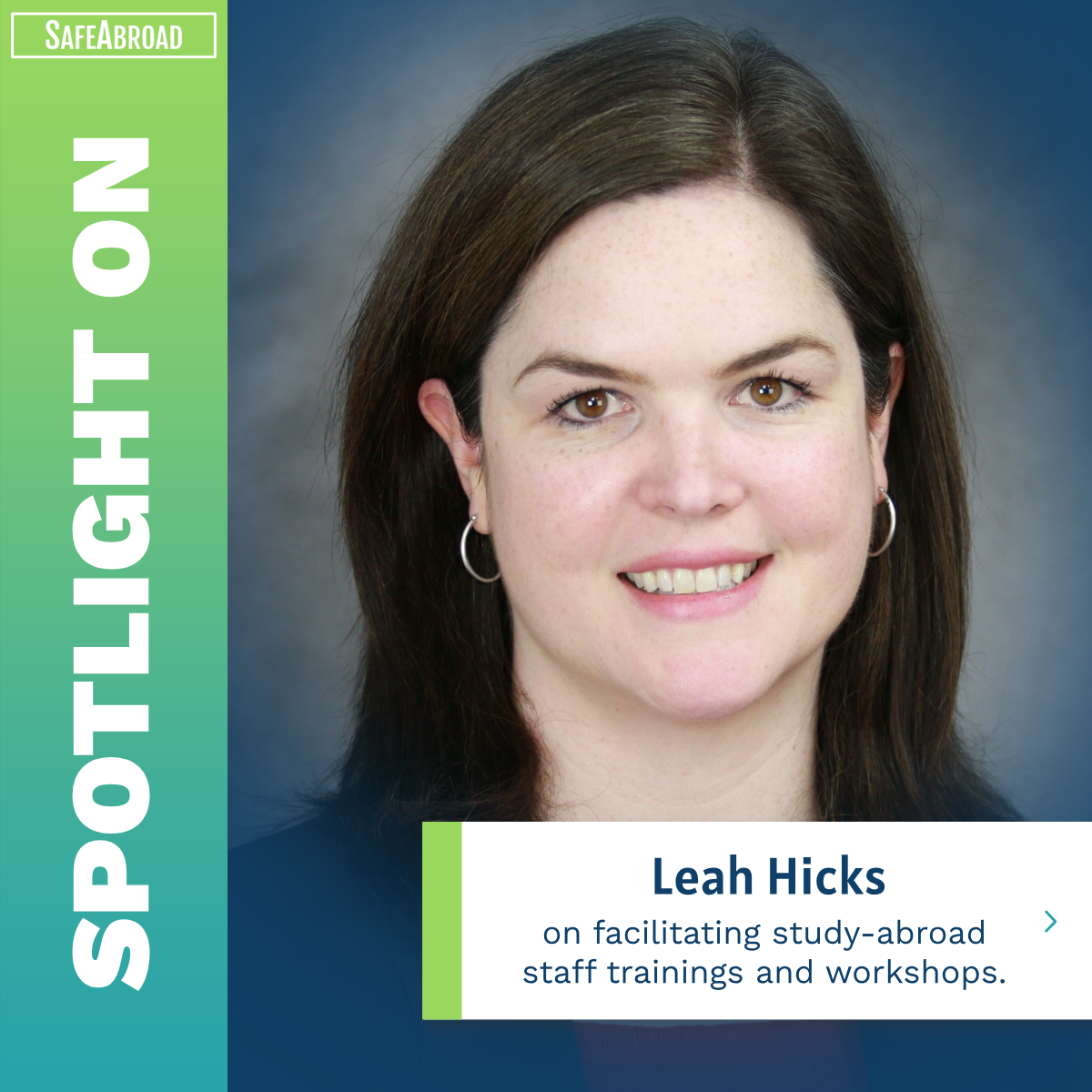Can you describe the key components of your pre-departure preparation program for students studying abroad?
I see our pre-departure orientation as multifaceted. It’s not a one-day ordeal because we have a lot of different touchpoints to cover with the students along the way. So, thinking about key components to ensure their success, we start with our selection maintenance seminar. This helps the students understand their expectations and their chosen program’s requirements. We run three types of programs, so there are three types of selection maintenance seminars covering the specific details of each program. We lead financial literacy workshops to equip students with the knowledge to maintain finances, financial aid, and scholarships to figure out what their budget is going to look like abroad and stretch their dollars while traveling. I’ve learned that finances are probably one of the biggest things that students really do not understand in terms of going abroad. Understanding academics and the health clearance process and teaching students how these standards differ from the main campus is another huge component. Especially on the health and wellness side, there’s a lot to consider, from required vaccines to medications and whether they’re allowed in certain countries.
Our safety and wellness workshop gives students the essential information that they’re going to need to know about maintaining their safety and maintaining their own well-being in a foreign environment. I’m very excited because we do partner with SafeAbroad for this workshop. I’m not an expert on all things, so bringing in SafeAbroad has allowed us to expand the information that we’re providing our students. This ties into our regional cross-culture workshop where we examine cultural differences and foster an appreciation for the customs and traditions of the destination they’re traveling to. Our pre-departure program is a very broad, but holistic approach to getting our students prepared to travel.
How do you tailor pre-departure safety training to address the unique risks and challenges of different destinations, such as travel to high-risk versus low-risk areas?
The safety of our students is our priority. Unfortunately, we do not have an international risk manager here at UCR. Even within the study abroad office; none of the staff members have risk management within their job description. Everything that we do in this pre-travel phase is proactive to ensure that we can minimize the risks that students may face while they’re abroad. This is really where I think our collaboration with SafeAbroad has proven invaluable. They’ve been able to provide tailored information that addresses unique risks and challenges to various destinations that our students are going to for our safety and wellness workshop. SafeAbroad has helped us fill these information gaps and has been an anchor point for us. I can’t do it; my staff can’t do everything, but SafeAbroad has this bird’s eye view of where my students are, and that you provide me with daily briefings about our countries’ current risks.
I think for us, having a partner when you don’t have a dedicated person who’s looking at risk is very key. I’m not an expert. I don’t have the time to be an expert. So, having a partner who has expertise, critical insight, and practical advice for navigating these types of risks that are happening while our students are abroad is a vital tool, and SafeAbroad is a vital partnership for us.
What role do parents and guardians play in the pre-departure preparation process? How do you engage them and ensure that they’re also informed about safety concerns and protocols?
Unfortunately, parents and guardians play little to no role in our pre-departure orientation. They’re always welcome to participate, but they rarely do. In the past, we’ve had some parents who are very proactive that would come to every single workshop, and we welcome that. Given FERPA laws and HIPAA laws, there are certain things we can tell parents and certain things we can’t, but we’ll never prohibit them from coming to a workshop with their students. I wish more parents did. It’s especially difficult considering that many parents are not local to where we are. We’ve been in this transition to a very new, different, virtual landscape since the pandemic, and this has opened the door to the possibility of remote options for families, but I don’t think we’ve gotten there quite yet.
We do engage with parents in various different ways, but they don’t play much of a role at this point in the process. Part of this is because there is a lot of policy guidance in terms of what can be communicated. It also makes it very difficult for an office to reach out to parents and let them know their student is going abroad if a student has no ties with their family. It entirely depends on the student to give their information to their parents, and unfortunately, some families are more proactive than others in getting that information.
Can you discuss any strategies or practices you have in place to encourage students to report safety concerns or incidents while they are broad, and how do you ensure they feel comfortable and supported in doing so?
I want to say the key thing here is trust. I’ve been working here at UCR now going on 18 years, and for me before they even get into the study abroad process, you have to show up where the student is. They have to get to know you from a different viewpoint. I’m not going to be able to get any information out of a student if they don’t have some sense of trust in me. The key thing is where we start with our students. Given that we have so many different touchpoints through our pre-departure process, our students are building this trust along the way; and not just with me, but also my colleagues.
I shouldn’t have to tell them to report to me if there’s an incident. I want students to be proactive in telling me information. I want them to create their own sense of family within themselves. One part of the regional cross-culture workshop is do a group project. So if they’re all going to the same country, they’re working as a group. My expectation is that if they see something going on with another student, they’re not just going to be a bystander. One year, I sent a student who was sight-impaired to Sweden, and I was terrified. I sent them to another country, which they couldn’t see, and they had to familiarize themself with new sites and sounds, and touches. But, I would get reports from the students on the ground. They’d tell me things like where they were living, down to how many streets they had to cross. It was interesting to see these students really look after each other. Knowing my students are helping other students from other campuses also is very warming to my heart. We also do regular check-ins with them through my “mama bear” emails, where students are given constant reminders that we’re here to support them additionally, emphasizing confidentially and non-judgment. It is all about fostering openness, honesty, and understanding and making the students aware that we are here to support them in a situation, but also empower them at the end of the day.
What measures do you take to keep students updated on local safety issues and how to respond to them?
I mentioned my “mama bear” emails; we send them out weekly on Wednesday or Thursday to give the students a snapshot of the days to come. The idea is to help them try to plan their weekends. We know they’re trying to do stuff—we don’t expect them to just go to school and go home—so with this, we’re able to send them some of the local safety issues that are going on and how to respond to them. Luckily a lot of our information is tailor-made by SafeAbroad. They’re monitoring all of the countries and the cities that our students are in. I also send over a list of regional information because students will probably travel to other countries in the region they’re studying abroad in. So we send out a curated snapshot of everything in the surrounding area so that they’re prepared for anything.
In an emergent situation—whether I’m getting that information through SafeAbroad, alerts through OSAC, Worldcue, or any one of the different tools I use to keep a bird’s eye view on our students—as soon as I get an alert I check in on students in the area are getting their “mama bear,” and make sure it has all the details of what is going on, and it will give them information based on their program type on how to respond or what action we want them to take. At that point, they must check in. I kind of joke with our students because we know they don’t really read emails, but the “mama bear” emails are the only emails I always stress to them. The subject line says “mama bear” so they know this is tied to an emergency, or this is tied to safety.






